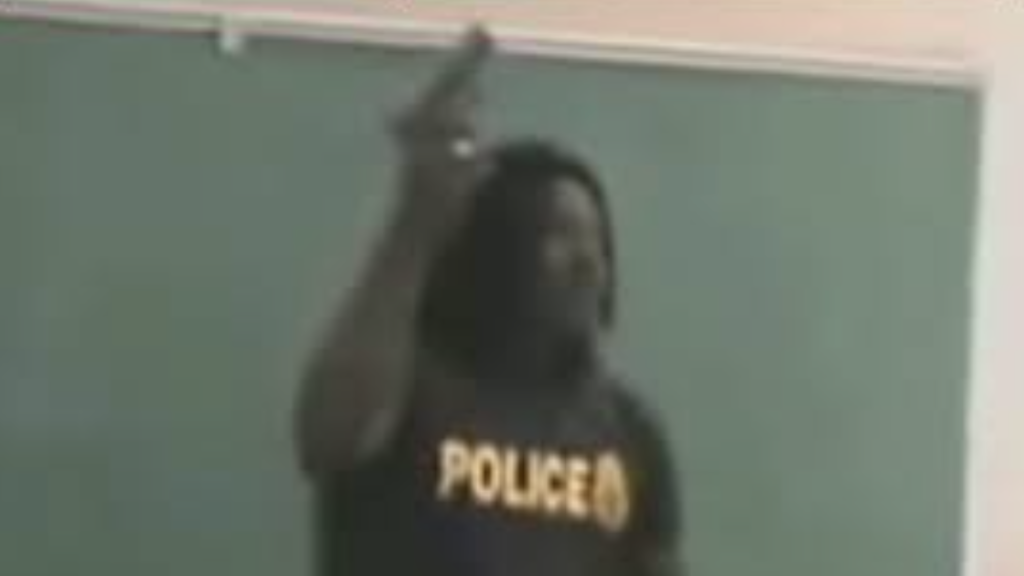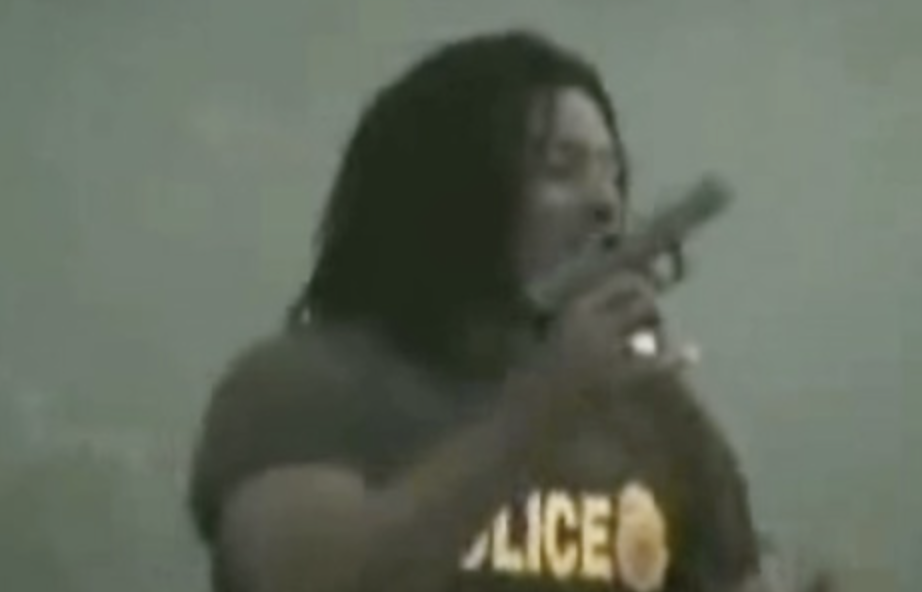In a bizarre incident that unfolded in 2004, a seasoned Drug Enforcement Administration (DEA) agent found himself at the center of an embarrassing situation after accidentally shooting himself in the leg while delivering a gun safety demonstration to a group of school children.
Lee Paige, a 14-year agency veteran, became an unintentional viral sensation when video footage of the incident made its way onto the internet, subsequently causing him to file a lawsuit against the DEA.
The Gun Safety Mishap
On April 9, 2004, Lee Paige gave a presentation on gun safety to students at the Orlando Youth Minority Golf Association.

In an ill-fated attempt to showcase his expertise, Paige, a former player for the Tampa Bay Buccaneers, inadvertently discharged his firearm, shooting himself in the leg.
Before the accident, he had boastfully informed the audience that he was the sole individual in the room skilled enough to handle a weapon safely.
Public Fallout
The incident’s aftermath proved to be a public relations nightmare for Paige. Suspended for five days without pay, he claimed that the video recording of the mishap was leaked by the DEA, thrusting him into the merciless realm of internet mockery.
The video quickly gained popularity online, receiving widespread attention on television, including appearances on late-night talk shows.
The video’s release took a toll on Paige’s professional and personal life.
Once an undercover agent, he found himself unable to continue such work due to the widespread recognition brought about by the viral video.
Additionally, Paige recounted instances where strangers recognized him in public places, subjecting him to unwelcome reminders of the incident and the subsequent embarrassment it caused him and his family.
tHE LAWSUIT
In April 2007, Paige filed a lawsuit against the DEA in a federal court in Washington, seeking unspecified damages for the violation of his privacy and the negative impact the video had on his career.

In December 2010, a U.S. District Court judge ruled against Paige, stating that he failed to provide evidence of who made the video public. Paige’s subsequent appeal faced a similar fate in a three-judge appeals court panel ruling.
While the courts determined that Paige’s privacy rights were not violated, they did acknowledge the DEA’s mishandling of the video as part of their internal investigation into the incident.

